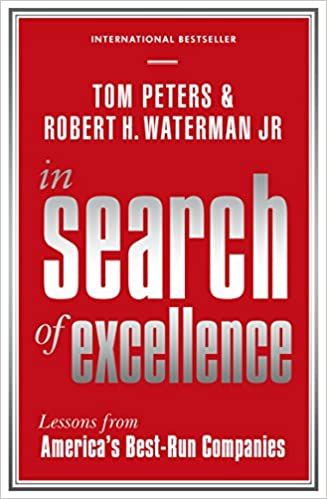Benel Lagua l August 23, 2024 l The Manila Times

DURING my graduate studies in business and public administration, management theories were influenced a lot by a book, “In Search of Excellence,” written by Tom Peters and Robert Waterman Jr., and published in 1982. The authors, consultants at McKinsey and Co., expounded on eight principles that distinguished successful companies. These became the blueprint for corporate success in the 1980s and beyond.
The eight principles consisted of the following: a bias for action, staying close to the customer, fostering entrepreneurship, valuing people, being driven by core values, sticking to core businesses, maintaining simple organizational structures and balancing centralized control with decentralized autonomy. The business landscape may have transformed dramatically, but these concepts have enduring relevance.
In 2001, Peters recalled he wanted to prove how people are crucial to the success of any business by freeing them from the “tyranny of bean counters.” Before the publication of “In Search of Excellence,” heavily systematized philosophies and practices were the principal management thoughts, influenced by Frederick Taylor, Peter Drucker and Robert McNamara. Peters and Waterman redirected the focus on people, customers and action. The book turned these soft factors into hard ones.
“A bias for action” means that successful companies act decisively and swiftly, a concept more relevant today than ever. With rapid technological advancements and shifting consumer behaviors, companies that hesitate in its decisions often find themselves left behind. The success of such companies as Amazon and Tesla stems from a relentless focus on innovation and speed, constantly testing new ideas and iterating quickly based on market feedback.
“Staying close to the customer” has also stood the test of time. The rise of digital platforms and social media has made it easier than ever for companies to engage directly with customers, understand their needs and tailoring their offerings accordingly. Apple and Netflix have thrived by maintaining an unwavering focus on customer experience, demonstrating that understanding and anticipating customer needs lead to success.
“Autonomy and entrepreneurship” are increasingly vital in today’s decentralized and innovation-driven economy. Companies that empower employees to take risks and experiment are often leaders of their industries. For instance, Google’s “20 percent time” policy, which allows employees to spend a portion of their time on projects of their own choosing, has led to the creation of some of the company’s most successful products, including Gmail. This autonomy fosters a culture of innovation and ownership.
The principle of “productivity through people” resonates strongly in the modern context. People are the greatest asset of successful companies. As organizations face challenges related to talent retention and employee engagement, those that invest in their workforce and create a supportive, empowering environment are more likely to thrive.
Some aspects of the book may appear dated in the context of modern business challenges. The principle of “stick to the knitting”, or focusing strictly on core competencies, might seem limiting in an age where diversification and adaptability are often keys to survival. Amazon and a number of Philippine conglomerates have succeeded by expanding far beyond their original business models, demonstrating the potential benefits of strategic diversification.
Cautionary tale
Moreover, the fate of many of the 43 companies cited in the book serves as a cautionary tale. While some have maintained their excellence, others failed to adapt to new realities, leading to their decline. Failure to evolve, innovate or maintain strategic agility can lead to struggles in the long term.
IBM, Johnson & Johnson and Procter & Gamble have continued to thrive and are still considered industry leaders today. Some companies had mixed results, faced significant challenges, went through major restructurings or were involved in scandals. For example, Xerox struggled with innovation and competition, while Eastman Kodak failed to adapt to the digital photography revolution. Atari and Wang Laboratories either went bankrupt or were acquired by others, effectively disappearing from the market.
Peters admitted that certain wrong companies were highlighted, but the book nailed the eight points of compass for business success. The flaw was in suggesting that these points would apply forever. While the principles are sound, maintaining excellence requires adaptation to changing market conditions. This underscores the importance of continuous evolution, a concept which is now recognized as critical for long-term success.
The business context of the early 1980s may seem dated or overly simplistic today. Also, the context in which businesses operate has changed significantly since the book’s publication, with the rise of digital technology, globalization and the increasing importance of sustainability and social responsibility.
Despite these changes, however, the core principles of “In Search of Excellence” remain valuable as foundational concepts offering timeless insights into what makes organizations successful. The enduring importance of agility, customer-centricity, employee empowerment, innovation and value-driven leadership continues to guide successful organizations today.
But excellence is not a permanent state. Success is not static, but a continuous journey requiring constant adaptation to a volatile, uncertain, complex and ambiguous world.
*** Benel de la Paz Lagua was previously EVP and chief development officer at the Development Bank of the Philippines. He is an active Finex member and an advocate of risk-based lending for SMEs. Today, he is an independent director in progressive banks and in some NGOs. The views expressed here are his own and do not necessarily reflect the opinion of his office as well as Finex. Photo from Pinterest.

